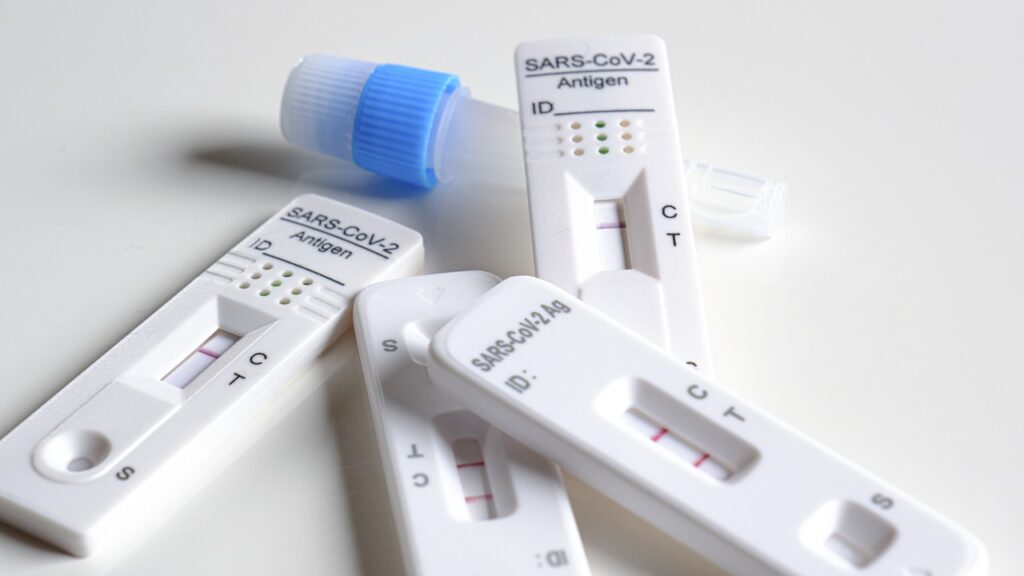How and When to Take a Rapid COVID Test

The government has begun mailing out free at-home tests for COVID-19. These rapid tests are meant to help curb the spread of the coronavirus. With at-home tests now readily available, CNBC looked into how and when you should take one.
First, it’s important to understand how the rapid test works. To take one you need to swab the inside of your nostrils and then expose the swab to a few drops of chemicals which look for small viral particles called antigens. Results typically take about 15 minutes.
The problem is that these at-home antigen tests are only about 85 percent accurate at detecting positive cases. If you really want to know if you have COVID-19 you should take a polymerase chain reaction (PCR) test — they’re considered to be the gold standard. However, PCR tests need to be done in a lab and results generally take about 24-48 hours.
So, how do you know which test to take? According to the article, if you’re experiencing COVID-19 symptoms go ahead and take the at-home rapid test. However, if you are asymptomatic and have been exposed, then you should probably take a PCR test. That’s because the rapid tests aren’t as sensitive for people who are asymptomatic.
It’s also important to point out that there are false negatives with the rapid tests. The CDC says if you are experiencing COVID-like symptoms you should isolate and consult your doctor. You may need to retest or take a PCR test to ensure you are not sick.
The bottom line is that these at-home antigen tests are just one more weapon in our war against COVID. Health experts urge people to get vaccinated and boosted and to continue to wear face masks when out in public.
The Seniors Trust is committed to improving the lives of seniors by working to improve Social Security. It wants to see Congress pass the Social Security Expansion Act. This landmark piece of legislation will provide bigger monthly Social Security benefits, establish a more realistic cost-of-living adjustment (COLA) for seniors, and guarantee the long-term solvency of the Social Security program.



